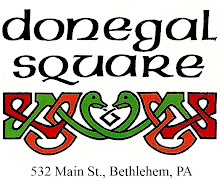(Remember the people whom you come from)
Probably one of the most distinctive features of Scotland, one that everyone can think of, is that of the clans. The clan system, which continued unchanged through nearly six centuries, has something inherently grand about it, and the ability it has to give an immediate sense of identity and shared descent to the people of Scotland and to their relatives throughout the world.
The word clann means family or children in Gaelic. Each clan was a large group of geographically related people, an extended family, supposedly descended from one ancestor, all owing allegiance to one clan chief. Clans also included a large group of loosely related septs, comprised of those who were descended from the chief through the female line and consequently bore a different surname; and those who sought and obtained the protection of the clan to become dependents. The most important clan chiefs held real power over the lands within their control, being part-king, part-protectorate and part-judge and jury.
The system remained largely intact until the time of the bloody battle of Culloden in 1746, where the Jacobite rebellion was crushed by the royal troops of King George II. Following the rebellion all clans, whether they supported the Jacobite cause or not, were subjected to the Act of Proscription which made restrictions on their ability to bear arms, wear the traditional dress of tartan and kilt, and even suppressed the sound of bagpipes for a time. The Heritable Jurisdictions Act removed the clan chieftains’ authority over their clans and the land that they had previously been in their control; effectively turning them into simple landlords and members of the British aristocracy, looking to the clan lands mainly to provide them with a suitable income. The end effectively came with the infamous Highland Clearances. The Clearances were the depopulation of the Highlands of Scotland between, roughly, 1785 and the late 1850s, by landowners evicting small farmers from their property and replacing them with more profitable sheep farms. Many thousands of Scottish land workers left in emigrant ships for Canada, the United States and Australia, seeking the promise of a better life on distant shores.
Millions of citizens from Canada, the United States and Australia are descended from these people, and in many cases, continue in some form or another, their traditions.
How can I find out about my Clan?

By far, the best method to begin your research is by contacting the Clan society that your family name has some connection to. These are non-profit social and historical organizations interested in promoting education and fellowship for individuals and families living in the United States and Canada whose ancestry traces back to one of the clans of Scotland.
Clan societies are represented at almost every single Scottish Games and Celtic festival in North America and Canada. Members often travel on their own resources to set up informational booths on their clan names to help educate and attract more people to their clan name and to foster a love of Scottish heritage. They act as genealogical banks for their clan names. Most societies require that you submit a copy of your family tree, as you know it, as a part of joining the clan. “We collect them from all members,” said Carole Bishop of Clan Cunningham. “The information gathered from the Trees is used to find common ancestors or long lost relatives among our members.” Other benefits of being a clan member include access to extensive libraries on Scottish history and genealogy and some clans also have a Clan Society Genealogist who can help you dig for information.
The interest in clans isn’t just for those who are researching their families. Most clan societies also welcome those who are simply fans of the clan name with no family tree required. “If you’re related that’s great,” said Richard Wallis of Clan Wallace. “As a Conviener (a clan member who travels to Scottish games and gatherings to set up information booths) though I’ll not reject you if you can’t prove lineage. With the Wallace clan, we had so many join because of an interest in the Braveheart movie, and a respect for the ideals of Wallace. That’s all we need really.”


No comments:
Post a Comment